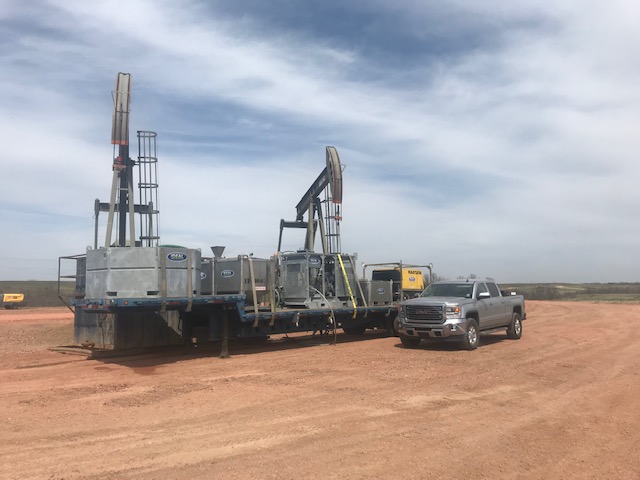Mechanical pipeline pigs have been in widespread use for a long time. One survey catalogs more than 500 types of mechanical pigs available to pipeline operators for a wide variety of tasks. This number has no doubt grown since this research was performed. Cleaning pigs—free-traveling cleaning devices sent through a pipeline by product flow, to scrape and brush foreign deposits, rust and dirt and fluids from the inside surface of the pipe—are a subset of this mature, mechanical technology.
The problem with many mature technologies—pipeline pigs, for example—is that, well, they’re mature.
Of the nine general types of pigs a major U.S. pipeline operator identifies as applicable to paraffin removal—swabs, poly pigs, spheres, cast urethane, mandrel urethane, bidirectional, brush pigs, plow blades, and gel trains—the company rates only one as “Excellent” for this task; it rates all the other types as “Poor” to “Fair.”
Regardless of effectiveness, the decision to use a pig for any task carries a large, unavoidable risk—getting it stuck. Pipeline Research Limited cites six main reasons why this happens:
PIGS PLUGGING A LINE
Wrongly designed or unsuitable pigs can lead to the pig plugging the line. Often, the more pressure that is applied to move the plug, the more jammed the pig gets, eventually requiring a pig cut-out and repair of the line.
BUILDUP OF WAX
Buildup of wax to a critical level and hardening of the wax as the liquid gets squeezed out by the pig can lead to plugging of the line. Wax plugs often withstand extremely high pressures before yielding. One of the ways to avoid pigs getting stuck in the wax is to include a bypass in the pig.
UNINTENTIONAL BYPASS
Unintentional bypass happens when the drive product flows past the pig due to a damage to the seals or due to the position of the pig in relation to the line components.
JACK-KNIFING
Jack-knifing can occur with dual-module pigs when the drive is transferred to the rear module instead of the front module. This results in seals moving off the center line and causing the pig to stall.
EXCESSIVE WEAR
Excessive wear of the pig seals can happen due to abrasive system, high differential pressure, rough internal pipeline surface, low-viscosity fluid in the pipeline, low diameter of the pipeline or low pig velocity. Use of lubricants, reduction in differential pressure, and use of high-wear kits are some of the ways to prevent excessive wear of the pig.
MECHANICAL DAMAGE
Unexpected situations while pigging or design problems can lead to loss of integrity to the pig’s components. Velocity excursions can lead to damage at bends, snatch loads or tensile loadings can cause damage to the couplings between pig modules, high velocities can lead to burning of the PU seals, and excessive line pressure can cause the body of the pig to collapse.
It’s easy to visualize the costs associated with “remediating the remediation,” in the case of a stuck pig, as well as the logistics of mechanical pig manipulation, even if all goes well.
Fortunately, Ideal Energy Solutions, LLC has developed a true, step-change alternative to mechanical pigs that opens new performance possibilities: PigRenew™ chemical pig.
PigRenew™ chemical pig offers powerful advantages: temperature independent, it is effective at removing paraffin, asphaltenes, or mineral scales at subsea temperatures below 34°F. It is not limited by the size or length of the pipeline, making it suitable for trunk lines, transfer lines, or process lines.
Granular PigRenew™ chemical pig contains surfactants and encapsulated oxygen. It can be blended onsite with fresh water, salt water, or produced water. Of critical importance, PigRenew™ chemical pig is non-hazardous and environmentally responsible.
Because it is heavier than any production fluids or solvents, PigRenew™ chemical pig will migrate to the blockage. Lighter fluids are displaced and collected. It has a very low surface tension, allowing it to penetrate the area between the blockage and pipe walls, as well as any cracks or crevices in the deposited material.
PigRenew™ chemical pig is aggressive on paraffin and asphaltene deposits in reduced flow pipelines, and increases water activity to penetrate very hard plugs at temperatures as low as 34 ̊F. PigRenew™ chemical pig penetrates plugs over any distance. When the plug is cleared, it leaves a micro‐resistant film to help prevent accumulation of future deposits.





